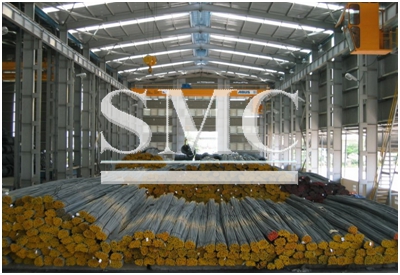
- المنتجات المعدنية منتجات الألومنيوم منتجات النحاس المنتجات المطلية بالمعادن المنتجات الفولاذية المقاومة للصدأ منتجات الفولاذ الكربوني خلط المعادن الخاص
- المشاريع لوحة الحواجز الفولاذية رف الخزانة الهياكل الفولاذية الجسر الفولاذي السقالة المواد الإنشائية المواد الخام الكيميائية One Stop Solutions for Projects
- الحاويات الحاويات القياسية لـ ISO الحاويات للمعدات الحاويات للتخزين والنقل دار الحاويات الحاويات المثلجة الحاويات القريبة السواحل
- الماكينات آلة تشكيل المعادن الآلات الأخرى آلة قطع المعادن آلة تصنيع المعادن آلة التعويج آلة تصنيع البلاط
- منتجات الماكينات صناعة السيارات المنوعات معدات الإرساء معدات السفينة أناء الضغط
- النظام الكهرباء والميكانيكي الكابل الكهربائي الأوتوماتيكي التنسيق الكهربائي نظام طاقة الشمس نظام حماية أمن الكهرباء آلة التحويل خط الأنتاج نظام الإضاءة
- المعدات الطبية منتجات الإطعام منتجات أنبوب إدخال القصبة الهوائية منتجات الرعاية المنتجات البلاسبيكية
- epc مشاريع
- آلات البناء
- خط أنابيب النفط
- خط أنابيب المياه
- انبوب الغاز
- مستلزمات السفن والرباط
- المعادن للزخرفة/ للديكور
- مكونات المحولات
- أنابيب التبادل الحراري
- قطع غيار تكييف الهواء ومستلزماته
- سخان مياه
- أدوات المطبخ و الحمام
- المعادن للأجهزة المنزلية
- أجهزة الطاقة الشمسية
- المصعد الكهربائي
- الأسطح والأسقف
- الكابلات
- الخزانات
- التعبئة والتغليف
- قطع غيار الآلات والمعدات ومستلزماته
- القوالب
- قطع غيار السيارات
- السكك الحديدية و رافعات السكك الحديدية
- تركيب الأجهزة
- الكاشطة
- معدات بناء الطرق
- المكونات الإلكترونية
- اعمال البناء ومواد الديكور
- الأبواب والنوافذ
- الثلاجات
Vietnam steel industry to reduce dependence on China
Two of the largest steelmakers in Vietnam are on the verge of multi-billion dollar investment bids, in an attempt to reduce the countries dependence on Chinese imports. Second largest, Hoa Sen Group is planning to spend $10 billion on production units in the southern city of Ninh Thuan, where it will be utilizing the large import and export opportunities of the deep water port. The port will allow easy access for the import of raw materials and the export of finished steel.
Construction will commence in 2017, whilst operation is scheduled to begin in 2019. If all goes according to forecast, the expansion will enable the Hoa Sen Group to quadruple their current annual capacity of 16MT to 64MT by 2031.
Although it’s yet to be revealed, it’s widely speculated that the new facilities are going to consist of a blast furnace, something that Vietnam lacks if it seriously wants to become a globally recognised producer of steel. A Taiwanese-led project by Formosa Plastics Group to start up Vietnam's first blast furnace has been set back by a toxic waste spill.

Hoa Phat Group, the Vietnamese steel industry leader, plans to build a $2.7 billion steelworks in the Dung Quat Economic Zone of Quang Ngai Province, on a site that a Taiwanese steelmaker had picked for a project that it proved unable to finance. Hoa Phat aims to start the new steelworks as soon as 2020. Its 4 million tons of annual capacity will lift the group total 130%.
As the Vietnamese economy continues to grow at one of the fastest rates in south-east Asia, so does the national demand for steel. The domestic production of steel represents just 40% of the countries consumption; last year saw a concerning rise of 33% in imports to 57.1MT, of which China accounted for 61%.
It would appear that Chinese overcapacity is also affecting countries closer to home, as some scenarios have seen the Vietnamese implement “safeguard” tariffs. It would also be of reasonable assumption to believe that the government would like to cut reliance on China given the increasing territorial tensions over the South China Sea.